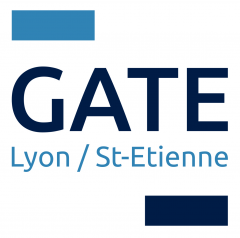
This workshop aims at developing scientific discussions about Social Norms and Moral Norms. One objective is to better understand when people are more, or less, likely to act fairly and honestly and follow the moral course of action and norms instead of serving their strict self-interest, including at the others’ expense. Another objective is to clarify the role of institutions in the evolution of social preferences.
Two research programs, CORTEX and FELIS, as well as the Van Gogh PHC programme sponsor this workshop
We are pleased to announce our speakers :
Gary Charness (University of California at Santa Barbara)
Brice Corgnet (GATE, EM Lyon Business School)
Jean Claude Dreher (CNC Lyon)
Enrique Fatas (University of East Anglia, Norwich)
Fabio Galeotti (GATE, CNRS)
John Hamman (Florida State University)
Astrid Hopfenstitz (Toulouse School of Economics)
Nils Köbis (CREED, University of Amsterdam)
Daniele Nosenzo (University of Nottingham)
Theo Offerman (CREED, University of Amsterdam)
Arno Riedl (University of Maastricht, Center of Neuroeconomics)
Ruff Christian (University of Zürich)
Ivan Soraperra (CREED, University of Amsterdam)
Jeroen Van de Ven (ACLE, University of Amsterdam)
Marie Claire Villeval (GATE, CNRS)
Ro’i Zultan (Ben Gurion University of the Negev)
Adam Zylbersztejn (GATE, University Lyon 2)
Organizer : Marie Claire Villeval (villeval@gate.cnrs.fr)
Workshop Social Norms and Moral Norms : October 16-17, 2015 in Ecully


FELIS
Main objectives
- Trust is a core component of the freedom and security of citizens, making relationships work more cohesively and efficiently. But it is fragile. Undermining trust raises transaction costs, weakens social cohesion, and ultimately reduces the freedom of citizens and impoverishes society (Arrow, 1972). Dishonesty introduces a major threat on trust and the ubiquity of deception is a major concern of modern society.
- FELIS’s ambition is to contribute to a better understanding of the determinants of deceptive behavior in order to improve the deterrence of dishonesty and promote the security of citizens.
- FELIS seeks to understand when people are more, or less, likely to act honestly and follow the moral course of action instead of serving their strict self-interest at the others’ expense. It aims at undertaking the standard economics-of-crime approach comparing the expected monetary benefits and costs of fraudulent actions by incorporating social, moral, emotional and psychological factors in economic decision-making.
Funding organization : Agence Nationale de la Recherche (ANR)
Budget : €210 000
Duration : Jan. 2015-Dec.2017
Principal Investigator : Marie Claire Villeval
Other participants at GATE-LAB : J. Benistant, L. Charroin, Z. Dai, F. Galeotti, M. Joffily, C. Saucet, Q. Thévenet, A. Zylbersztejn
Partners : L. Denant-Boemont and D. Masclet (CREM, University of Rennes), B. Fortin and G. Lacroix (Laval University, Quebec), S. Shalvi and J. van de Ven (University of Amsterdam), and A. Suvorov (Higher School of Economics, Moscow).
Work Packages
- Work Package 1 : Dishonesty and the maintenance of the self-concept of honesty
- Work Package 2 : Deception and the exploitation of asymmetric information
- Work Package 3 : Deterrence effect of information disclosure on the occurrence of crackdowns
- Work Package 4 : The social dimension of deception in networks and the role of peer effects.
- Work Package 5 : The restoration of trust after its destruction by dishonest behavior
Methodology
- FELIS offers a unique combination of game theory, experimental economics and psychology to better understand the causes and consequences of dishonesty. It combines theoretical modeling based on behavioral economics and experimental methods (laboratory experiments, lab-in-the-field experiments, neuroeconomics).
